ACTION C.1: Forestry nursery and reforestation
The Action is necessary to restore the floodplain oak forest and to maintain the associated wildlife in the adequate conservation status. It aims at producing a good number of healthy tree individuals from seeds of local plant species according to an appropriate phytosanitary protocol, and it is complementary to the Action C2 that aims to promote the establishment of the spontaneous renovation. The seeds of the forest species are harvested in the wood of Palo Laziale and then sent to the nearby nursery set up by ARSIAL for sprinkling and farming. The seedlings are raised in phytocell until about three years when they will be manually planted in the forest of Palo Laziale in sites where the restoration actions will not appropriately accomplish the natural recovery of vegetation. At least 2,500 seedlings (3 years old) of native tree species, including Quercus cerris (40%), Fraxinus ornus (30%), Quercus pubescens (20%), Quercus ilex (10%), will be raised and planted. These percentages are indicative as they will be reviewed according to the forest surveys carried out in action A5. Seed harvesting and sowing are carried out during the first autumn, planting over the last year of the project.
Fraxinus spp.
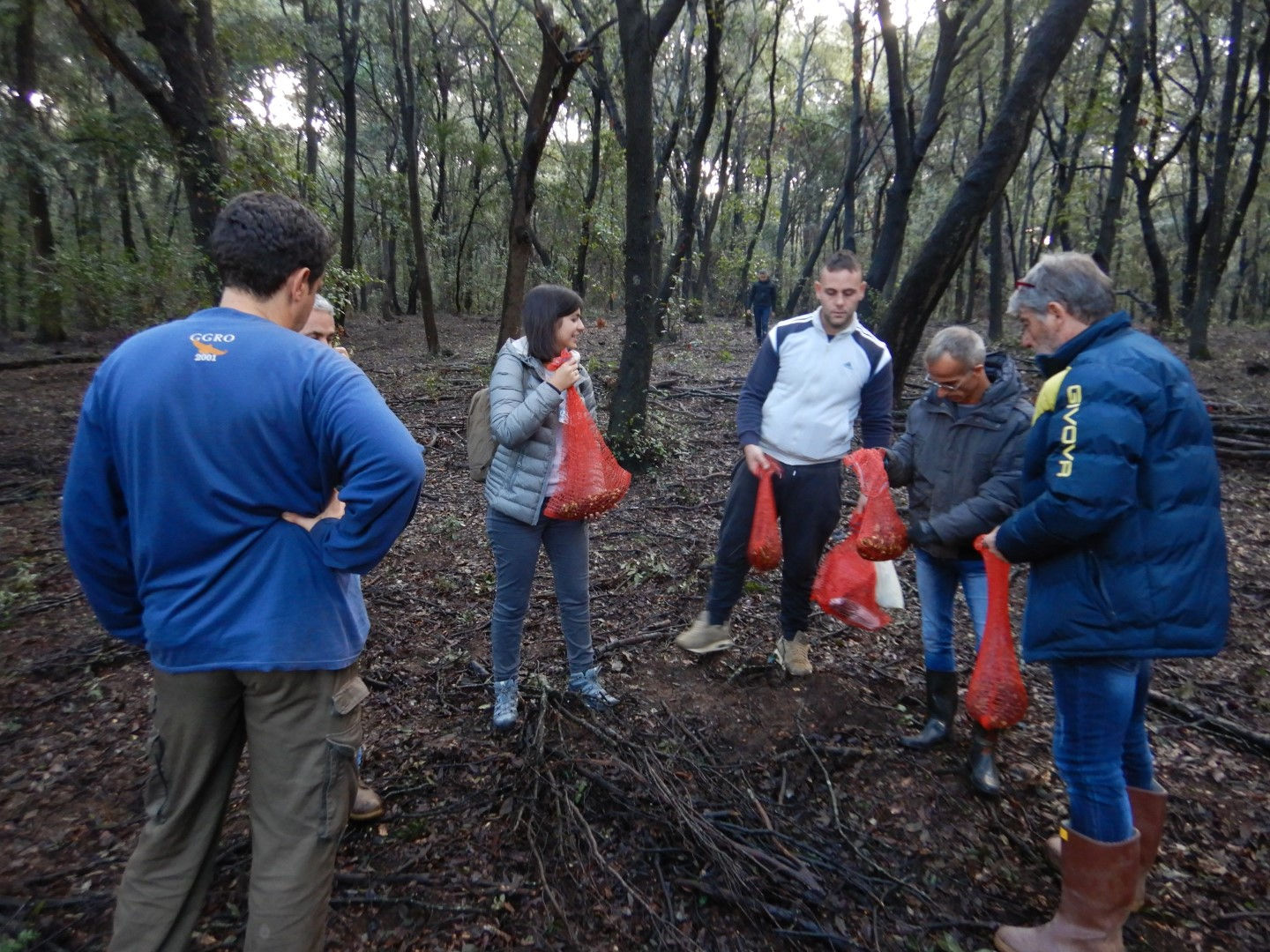
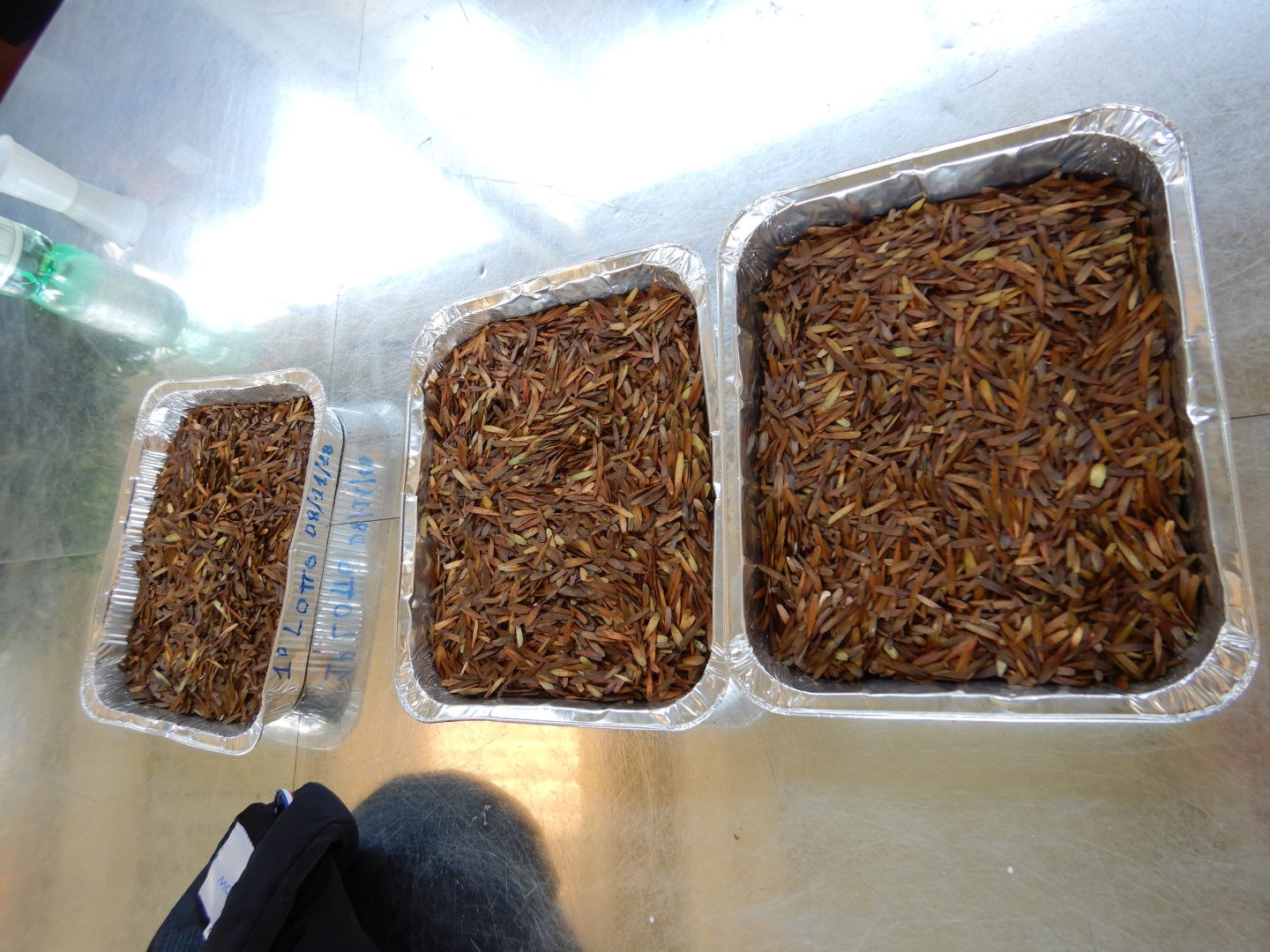
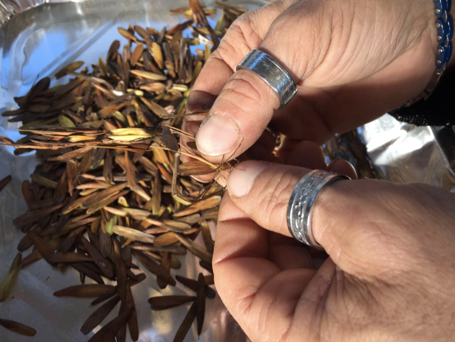
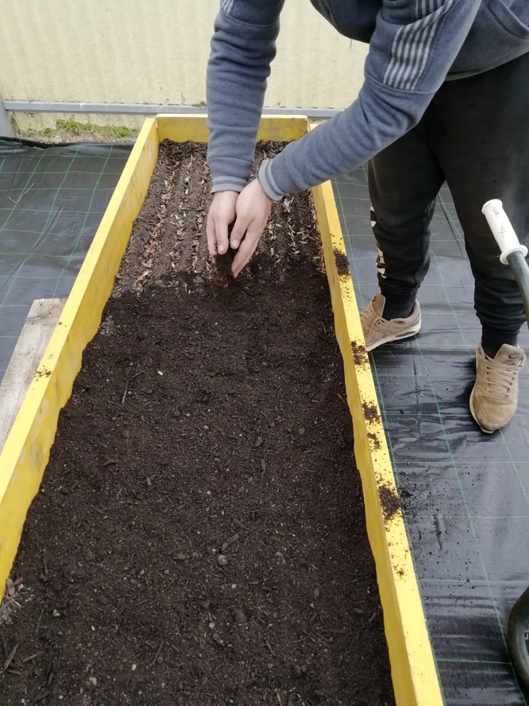

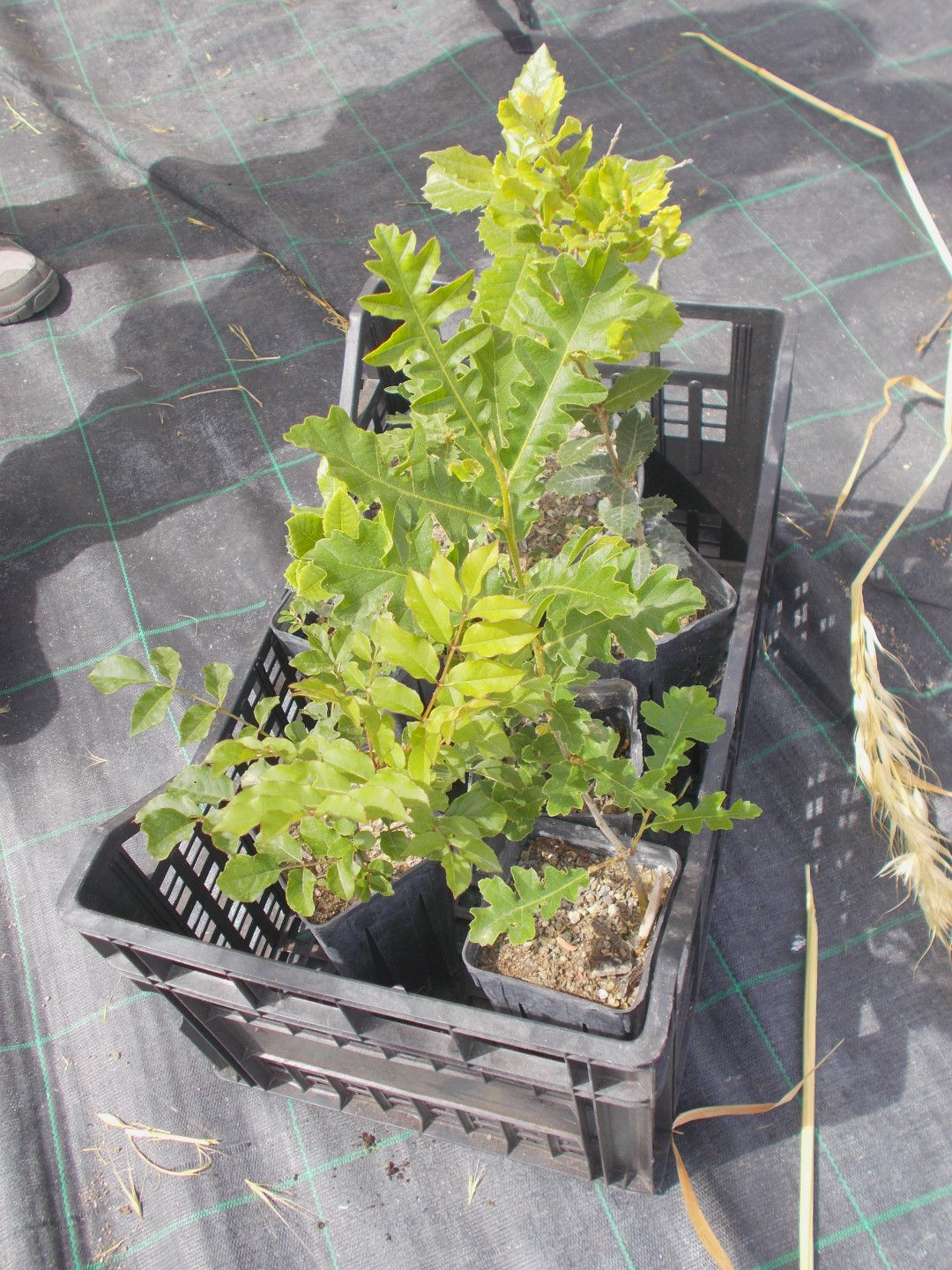
Quercus spp.
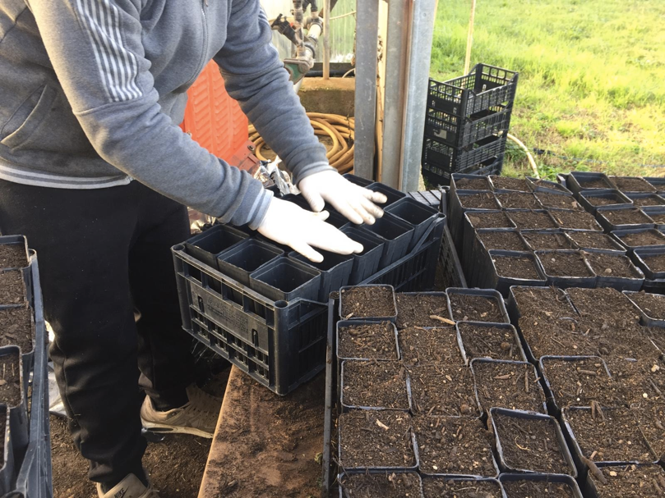
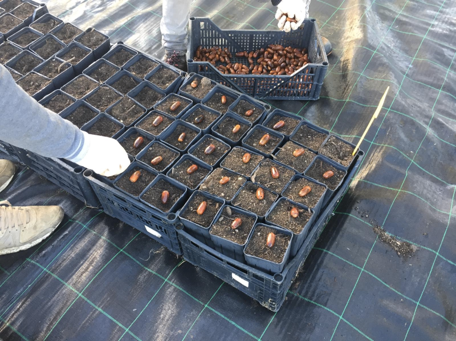



The forest restoration action as a whole will increase the overall resilience of the ecosystem, which is indispensable to guarantee an optimal ecosystemic balance with the temporary ponds (habitat 3170*). In such a way, the ponds will no longer be affected by the shrub invasion and its burrowing-effect. The phytosanitary protocol will be developed by DEB to guarantee the production of seedlings devoid of pathogens and, after testing, it will be transferred in other similar environmental contexts. To guarantee the success of reforestation will also be taken into account the water supply provided by action C3.
Beneficiary responsible for implementation:
ARSIAL coordinates the action, supervises the implementation of the phytosanitary protocol, provides a team for the seed harvesting and the plantation of plants. Moreover, it sets up nursery facilities in the premises of its Research and Innovation Agricultural Centre of Cerveteri, which is located only a few kilometres far away from the project area. The nursery team will support the project from the sowing to the breeding phase of the seedlings.
DEB will employs:
- an Associated Professor to supervise the seed harvesting, the elaboration of the phytosanitary protocol and the final report;
- a Laboratory Technician will be involved to monitor the activities carried out in the phytopathology laboratory;
- a Phytopathologist, experienced in the field of phytopathology and nursing techniques, to supervise the implementation of the nursing activities and the field actions (seed harvesting and seedling plantation), and to elaborate the phytosanitary protocol.




